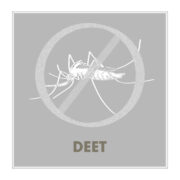So, you have dry, itchy skin. You slather on some cream to help with the dryness, but the itching is relentless and the dryness just comes back. What gives?
If your skin is prone to itching or is dry and red, inflamed, scaling, or oozing, common symptoms of eczema, then it’s possible food allergies or intolerances are at least part of the problem. According to the American College of Allergy, Asthma, and Immunology “Eczema, also known as “atopic dermatitis,” is often associated with food allergy; approximately 37 percent of young children with moderate to severe eczema also have food allergies.” [1]
And the UCLA Food & Drug Allergy Care Center states,
“About a third of children with moderate-to-severe eczema experience acute worsening of their chronic rashes when they ingest trigger foods.” [2]
The numbers for adults are not readily available, but should be similar.
Common eczema food triggers are dairy, eggs, gluten, soy, peanuts (and other legumes), but other foods such as those in the nightshade family (bell peppers, eggplants, etc.) and acidic foods (tomatoes, oranges, etc.) can also further aggravate eczema and itchy skin. Keep in mind, these are common triggers, but any food or even spice, can cause an allergy or intolerance. Many people think because they don’t see an immediate reaction after consuming one of these foods that the food must not be an issue for them. While immediate skin reactions to a food are usually labeled as a true allergic response and can include hives and itching among other symptoms, delayed reactions, considered an intolerance or sensitivity, are also possible and can occur up to 48 hours after a food is consumed. The source of an immediate reaction is much easier to identify, but with delayed reactions you would have to review every single ingredient in the food you’d eaten in the past two days to try to determine what caused the reaction. Quite an undertaking.
So, how can you determine if food is triggering your eczema or itchy skin?
Sadly, false positives and negatives are common with blood and skin allergy testing (IgE), as well as intolerance testing (IgG), making them very unreliable when used alone. However, when combined with your history of reactions or an elimination diet and food challenge, the mystery begins to unravel. For example, you can temporarily remove the foods from your diet that appeared positive in allergy testing, this is called an elimination diet.* It’s best to meet with a dietician about your restricted diet as they can help ensure you’re getting the proper nutrients during this time. Then ask your allergist to help you conduct an in-office food challenge, consuming small amounts of the foods in question in a controlled medical setting and monitoring for any reaction. Remember to be on the lookout for delayed reactions after you’ve returned home. If you discover one or more foods trigger your eczema, you should find relief by eliminating the foods from your diet as much as possible. If a food does not cause an immediate or delayed reaction, certainly add the food back into your diet and enjoy.
If you’ve eliminated the foods that were triggering your dry, itchy skin, but your eczema hasn’t fully improved, consider moving to natural, pH balanced laundry and household cleaning products, moisturizing soaps, and identify any seasonal or environmental triggers that may still be plaguing your skin. And remember stress is often a huge trigger for eczema. Try to reduce stress with calming activities like yoga, deep breathing, and meditation.
Everyone’s eczema triggers are different, but once you’ve found yours, you’ll be well on your way to healthy, beautiful skin.
 About our Guest Contributor: Jennifer Roberge is a mother of two. She blogs about her family’s battles with eczema, allergies, and asthma at It’s an Itchy Little World. After conquering her son’s severe eczema, she founded The Eczema Company, which offers specialty clothing and natural, non-toxic skin care for eczema.
About our Guest Contributor: Jennifer Roberge is a mother of two. She blogs about her family’s battles with eczema, allergies, and asthma at It’s an Itchy Little World. After conquering her son’s severe eczema, she founded The Eczema Company, which offers specialty clothing and natural, non-toxic skin care for eczema.
For more information, enter “eczema” in the search field at skintelligencenter.com.
References:
- http://www.acaai.org/allergist/allergies/children-allergies/Pages/eczema-in-children.aspx
- http://fooddrugallergy.ucla.edu/body.cfm?id=39.
*Editor’s Note: The process of the elimination diet is similar to the “7-Day Skin Fast” we frequently recommend at VMV HYPOALLERGENICS® to safely try products on sensitive skin or skin recovering from a reaction.
This article is a Guest Contribution. We include articles contributed by doctors, experts or other individuals who wish to provide helpful information to their patients and the public at large, who respond to our requests to use them as professional resources, or who we feel can give our readers new insights into various topics. Contributors may or may not prefer to remain anonymous and we respect this preference. These resource articles do not in any way imply an endorsement by the guest contributor of VMV HYPOALLERGENICS® or any of its products, services or resource sites—they are intended for informational purposes only. While sometimes written by or with resource professionals, these articles should not be relied on for diagnostic accuracy or applicability to your particular skin, which requires an in-person ocular consultation with a qualified physician. For appropriate care for your skin, please consult your dermatologist.
If you have a history of sensitive skin, don’t guess: random trial and error can cause more damage. Ask your dermatologist about a patch test.
To shop our selection of validated hypoallergenic products — most of which are ideal for eczema, psoriasis, contact dermatitis, chronic acne, melasma and other complex skin conditions — visit vmvhypoallergenics.com.
Need help? Leave a comment below, contact us by email, or drop us a private message on Facebook.




keto diet is bad